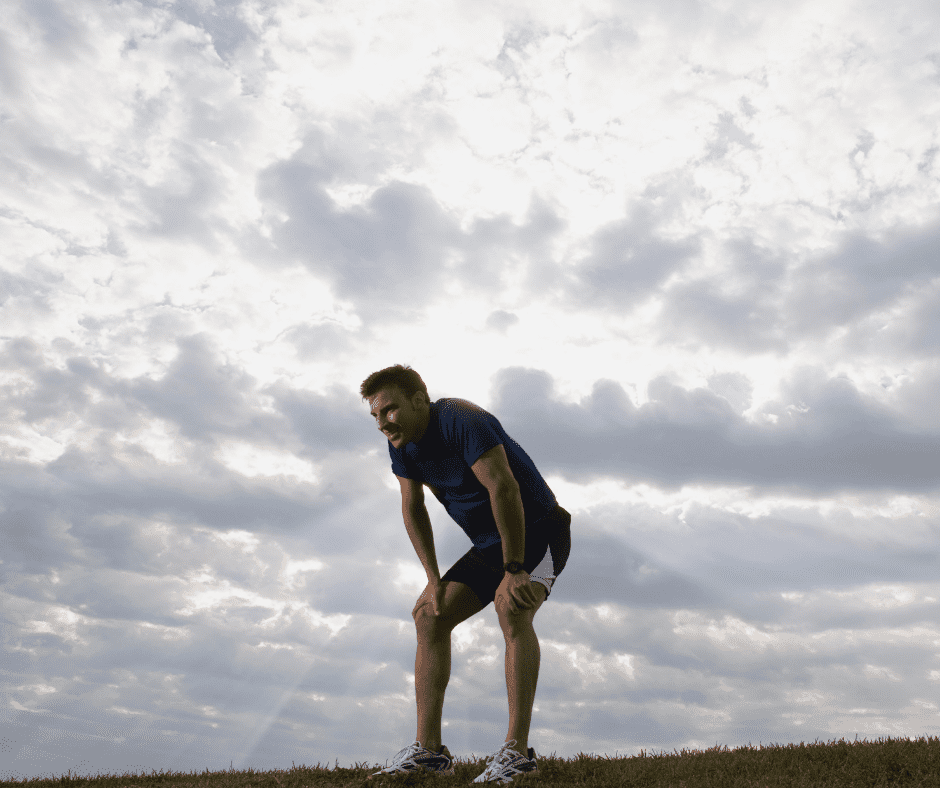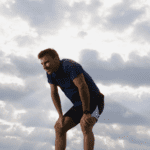One of the obstacles that runners face if they want to improve their performance is getting enough sleep.
Most of us wake up early before the rest of the family to get our run or strength training in, this means we get less sleep.
We can often do that after a restless night of bad-quality sleep…
So that beg’s the question…
Should we run on little to no sleep?
Running on no sleep comes with some dangerous health implications. Doing it once in a while (If extremely necessary is alright) but it’s the continuous routine of this that leads to the risk of illness and injury
In this article, we’re going to have a look at…
Should You Run If You Feel Tired
The Importance Of a Good Night’s Sleep
Safety Concerns Of Running When Sleep Deprived
What Can You Do If You Are Sleep Deprived
Let’s begin…

Should You Run If You Feel Tired
When you’re training for a goal race and following a training program it’s not unusual to have days that feel like they require more effort than they typically do.
If your training plan is increasing your intensity and adding more speed-orientated sessions then it will take time to adjust and this may cause fatigue.
Other factors contribute to your feeling fatigued and these could vary from work, family responsibilities, not getting enough sleep at night, and stress.
Stress is made up of the things listed above, and while people don’t see exercise as stress – physiologically it technically is.
The body just adapts to it which is why we feel better afterward.
It’s important to know how to prioritize all the runs within your weekly schedule so that you know which sessions are vital and which you could skip if you’re having one of those days.
It also depends on where you are in your training cycle. If you are in the early stages of your training cycle or you are in the final weeks leading up to your goal race.
If you’re training for a goal race that is a half, full, or ultra-marathon then prioritizing your long runs to build up your aerobic capacity and get your mileage in would be a good idea.
If you’re training for a goal race that is shorter like 5km or 10km then you should prioritize your interval sessions.
Remember, the main lesson should be that we need to prioritize sleep and so if this is happening once or twice this is the lesson. But it shouldn’t be prioritized at the expense of sleep.
It would be key to stick to your training program but if you are feeling too tired to train, listen to your body and rest if that’s what you feel you need.
Planning is also essential which is why having a flexible training program is great.
If you come into a week where you know that your training is going to be compromised because you have a busy schedule that week then you can determine which sessions are a priority and if you need help, this is something you can chat to a coach about. (One of the perks of being part of the Coach Parry training club is having access to our global community forum)
It is always going to be more beneficial to you and your training to drop something out of the week rather than cram it all in.
This ties back into the way the body sees exercise as “stress” it can’t determine good stress and bad. So it quantifies it the same way and so we need to make some adjustments for recovery so that exercise is still a positive stress.
We know runners tend to feel guilty if they aren’t completing exactly what it says on their schedule but swapping a run of a low-intensity strength class or even skipping the training altogether and getting some rest is still going to reap benefits.
So, the answer is, yes, you can still go for a run even if you didn’t get a great night’s sleep.
Bearing in mind what we discussed above of course.
Here at Coach Parry, we’re massive advocates of strength training. We’ve put together this free strength training plan for runners that you can do once a week, at home and with no expensive equipment needed. You can access it by clicking here.
Sleep deprivation from multiple nights will have negative effects on more than just your running performance… It is vital to prioritize getting quality and a good quantity of sleep each night.
Here’s why…
The Importance Of a Good Night’s Sleep
Not getting an adequate amount of sleep affects both your physical and cognitive function which will have a significant impact on your running preparation, performance, and recovery.
Numerous studies show us that improved brain processing functions in athletes are linked to athletes who prioritize sleep, this is because decision-making and adaptability are key factors to improved performance.
Sleep is one of the non-negotiable pillars of recovery, training, and ensuring you get to the next workout feeling good.
Improving this one part of your life can make a world of a difference.
Benefits of getting a good night’s sleep for runners:
- Build Muscle & Repair Tissue
- Athletic Performance
- Hormonal Balance
- Water Reabsorption
- Concentration
- Reduce Injury Risk
- Immunity Boost
Now that we know why you should be getting a lot more shut-eye, let’s have a look at what could happen if you go for a run while sleep-deprived…
Safety Concerns Of Running When Sleep-Deprived
The biggest safety concern of heading out for a run when sleep deprived is the increase in the risk of injuring yourself or picking up an illness.
- Getting an insufficient amount of sleep will lead to slower reaction times, abnormal hormone levels, and impaired cognitive function. Meaning your chances of tripping or twisting an ankle or even making bad decisions based on how your body is feeling are all increased.
- Sleep is extremely vital for improved running performance and a lack of sleep will impair your post-exercise recovery.

- Not getting enough sleep can also impact your immune function because your cortisol levels and markers of systemic inflammation will be higher, which could lead to you getting sick.
- Risk of injury. Similar reasoning to the above… increased inflammation and a decrease in testosterone and Human growth hormone could lead to your risk of injury increasing.
All 4 of these points contribute to increasing your risk of getting ill or injuring yourself when running sleep deprived.
Let’s see what you can do when you are sleep deprived but need to train…
What Can You Do If You’re Sleep Deprived & Need To Train
- Have a nap.
If you’ve only lost a few hours of sleep, napping could reduce your symptoms.
Something very interesting about napping is that the ideal nap time apparently is 20 – 30mins. So it was suggested that athletes have a cup of coffee before they nap so that the caffeine comes into effect around 20 mins later to wake them up.
- Practice good sleep hygiene.
We explain good sleep hygiene and how you can implement it in your home in this article: Here.
- Prioritize sleep.
If you have a bad night’s sleep, make sure you prioritize getting better sleep the next night.
- Caffeine.
Caffeine can help if you need an energy boost as long as you don’t overdo it and make sure to not have any close to bedtime.
- Take breaks.
After a bad night’s sleep, you may struggle to focus, but taking breaks throughout the day will help.
- Avoid alcohol.
Alcohol is really bad for sleep. You may think you “pass out” but in actual fact, it doesn’t allow for good quality sleep and all the good muscle repair that happens is pretty much negated then by the alcohol.

Many studies prove that exercise does in fact help you to fall asleep faster… Let’s have a look at if running falls into that category.
Just because you didn’t get enough sleep doesn’t necessarily mean that you can’t go running or shouldn’t go running.
It may just mean doing a lighter or easier session and monitoring your recovery with something like HRV and or RHR – these will help you make those decisions.
It is important to remember the risks involved and listen to your body and know that it’s okay to adjust your expectations of yourself.




Comments are closed.